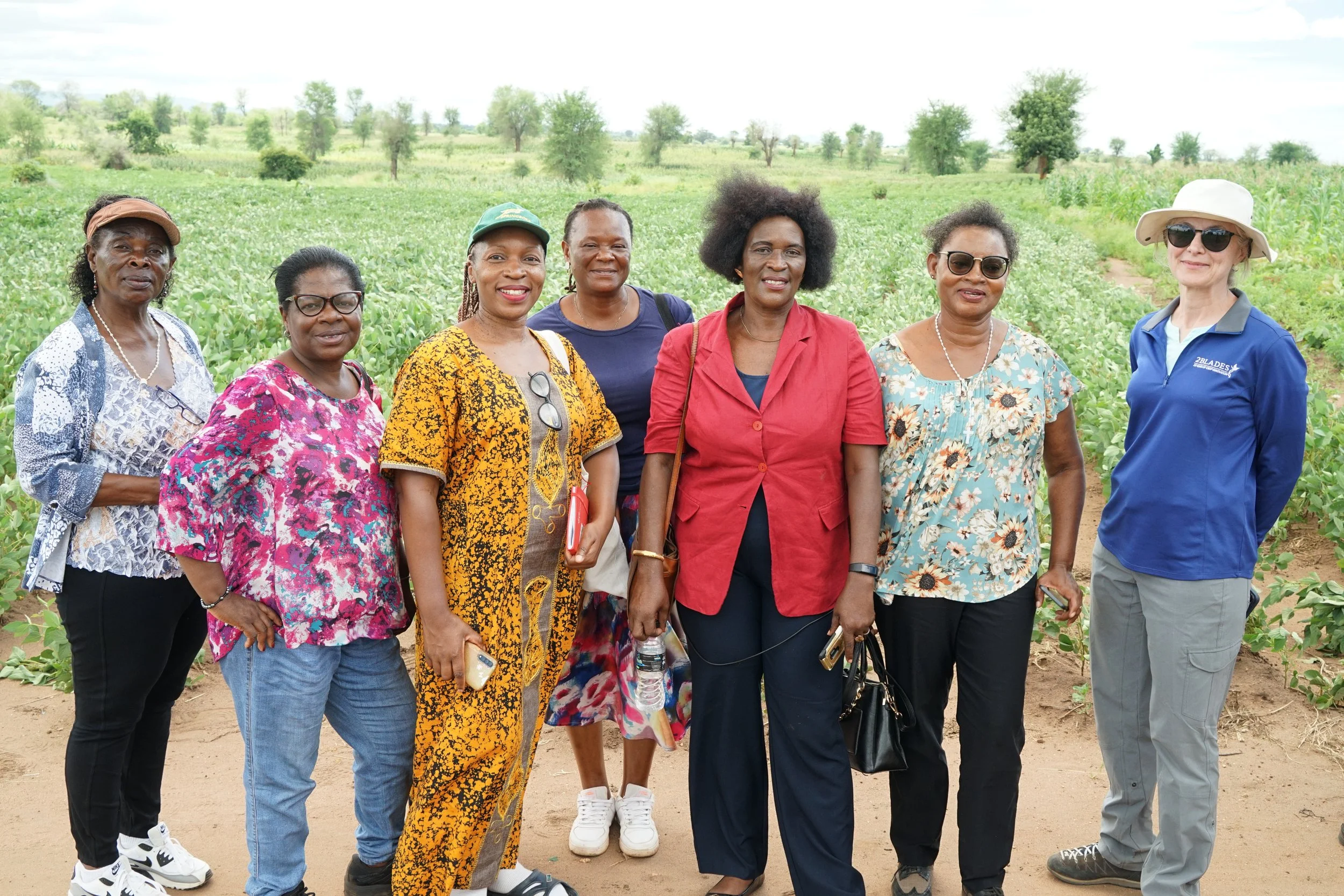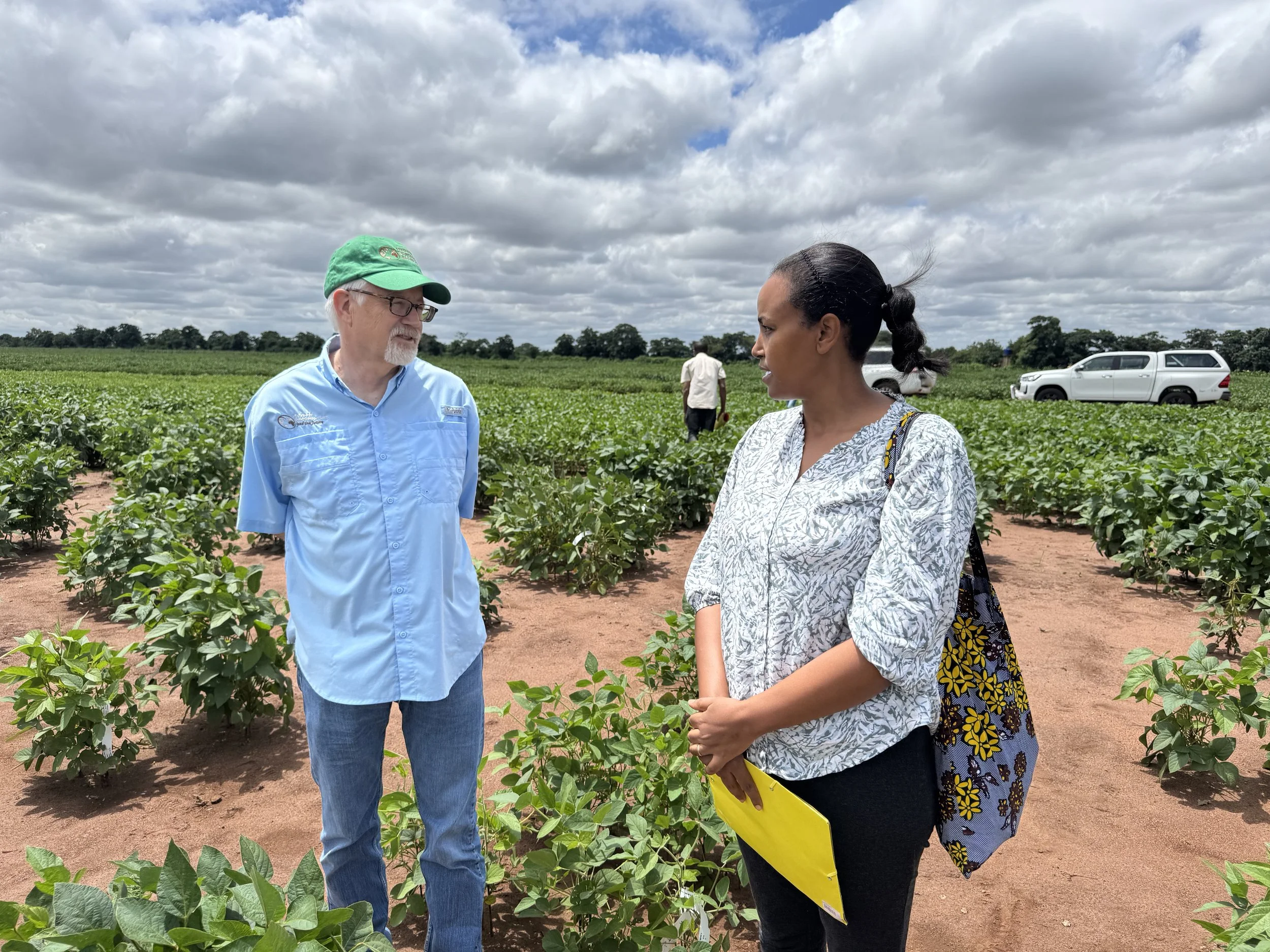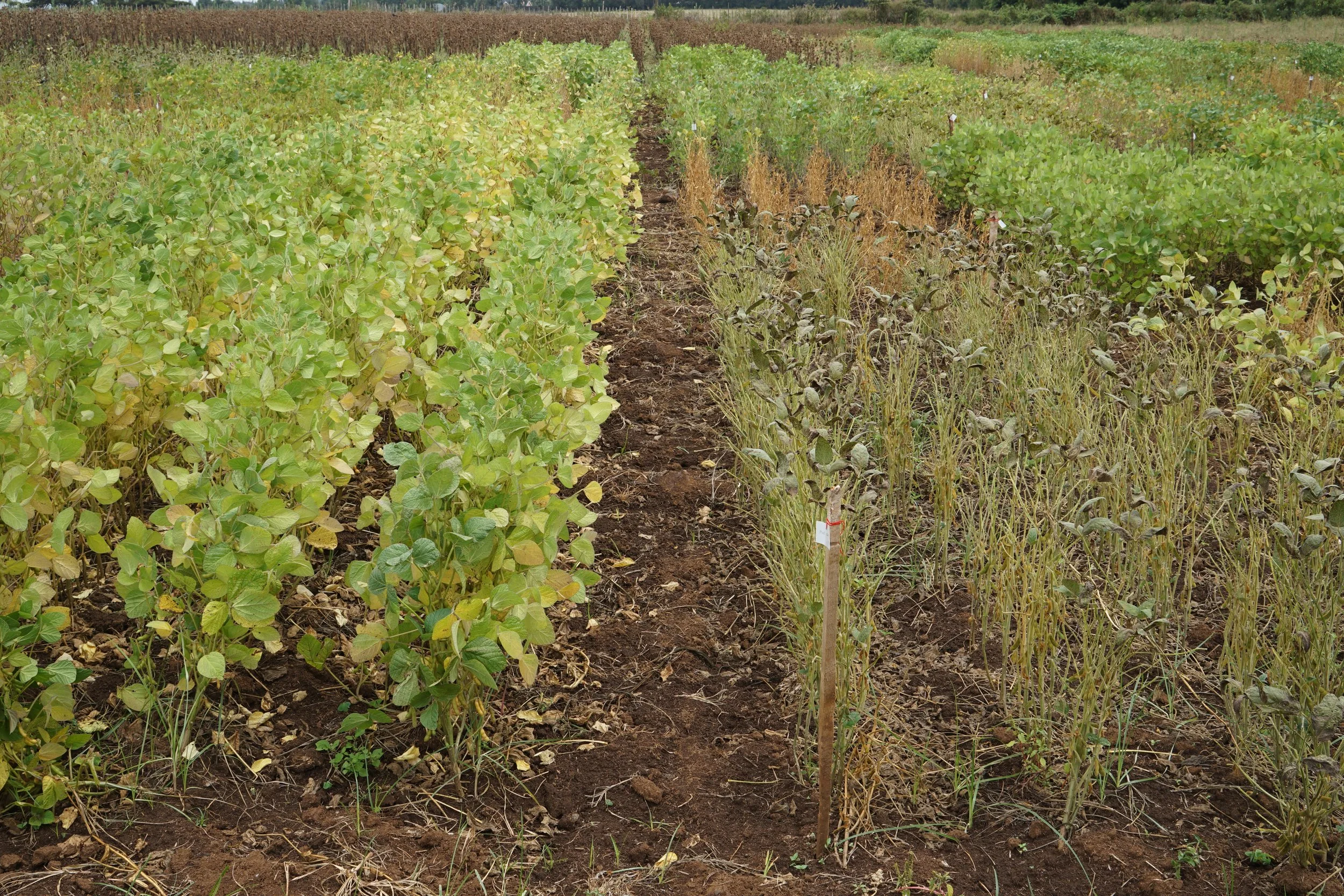Embracing the Challenge of Rough Seas
On March 28, the U.S. government formally announced the complete dissolution of the United States Agency of International Development (USAID), leaving hundreds of international agriculture programs in a state of confusion and uncertainty. The decision followed a turbulent two months marked by mass layoffs, sweeping agricultural tariffs, and major shifts in federal policy. The United States was not alone—many European countries and private foundations have also pulled back, leaving critical global development efforts at risk of stalling just as global challenges demand urgent action.
2Blades’ Diana Horvath with entrepreneurs and aggregators; Malawi
2Blades’ team members were on the ground in Sub-Saharan Africa as these changes unfolded and learned how many of our collaborators and research partners were affected by the loss of USAID funds and impact on farmers’ access to the latest agricultural innovations.
One program was the Feed the Future Global Biotech Potato Partnership (GBPP), led by Michigan State University and the International Potato Center (CIP).
The GBPP has made groundbreaking progress in advancing late blight-resistant (LBR) potatoes in four countries. The LBR potatoes carry genes from wild potato relatives that protect against Phytophthora infestans, the same pathogen responsible for the Irish Potato Famine and still causing over USD $6.7 billion in annual global crop losses to this day. The project had reached the final stage in Kenya and was poised to submit its regulatory dossier when funds were frozen.
As a long-time partner with CIP, 2Blades recognized the imperative of keeping momentum at the pinnacle of this effort. It immediately agreed to cover the small fees to initiate review of the dossier and keep progress moving forward.
Another casualty of the USAID cuts has been soybean breeding.
The USAID Soybean Innovation Lab (SIL) has made important strides in several areas, including supporting the International Institute of Tropical Agriculture (IITA)’s public breeding program for African soybean, through its Pan African Trials. SIL and IITA alerted growers to scout for and manage Soybean Rust (SBR) - a fast-moving, airborne fungal disease caused by Phakopsora pachyrhizi that can destroy up to 90% of a harvest in as little as three weeks. SBR is the leading cause of soybean loss across Sub-Saharan Africa, and it disproportionately affects smallholder farmers who often lack access to quality seed or affordable, effective fungicides.
2Blades and IITA are collaborating to advance SBR-resistant soy for farmers in Africa
Diana Horvath and Kamil Witek visited the IITA research station in Lusaka, Zambia, meeting IITA’s chief soybean breeder, Dr. Godfree Chigeza, and other researchers working to advance soybean varieties with improved agronomic traits and disease resistance. 2Blades, at its laboratory embedded in The Sainsbury Laboratory, has focused on SBR through commercial partnerships with Bayer and Corteva by producing resistance genes for their soy pipelines. 2Blades leverages those resources to advance SBR resistance in African soy via local partnerships.
2Blades and IITA established a Memorandum of Understanding (MOU) last year to tackle resistance to SBR. Part of this collaboration includes support for Ms. Habtamnesh G. Habtemariam, a Ph.D. student at the University of KwaZulu-Natal, to screen soybean for SBR resistance in Malawi and Zambia.
The IITA and 2Blades teams met with national agricultural research service partners, including the Malawi Department of Agricultural Research Services and the Zambian Agricultural Research Institute, the junction points for delivering research outcomes for national needs. Together, IITA and 2Blades are working to continue and expand on the efforts of SIL to meet the enormous demand for soy for feed and food in Africa.
Dr. Brian Diers talking with Habtamnesh Habtemariam while visiting her field trials; Malawi
CGIAR centers are also affected by USAID cuts.
The Consultative Group on International Agricultural Research (CGIAR) is a network of 15 centers that carries out agricultural research to reduce rural poverty and improve food security. They have been supported by USAID funds of up to $100 million.
2Blades has collaborated with a number of CG centers and last month formalized a collaborative agreement with International Livestock Research Institute (ILRI) and its Demand-Led Breeding (DLB) project. The collaboration will expand 2Blades’ Corn Mycotoxin Mitigation Initiative through DLB collections of regional Fusarium strains and surveys of smallholder farmer experiences with mycotoxins in maize production. 2Blades’ Josiah Musembi Mutuku and Jack Luft recently returned from the CGIAR Science Week in Nairobi to further support opportunities to advance innovations for international agriculture.
Other organizations have also been hit by the loss of USAID, and their futures are uncertain.
Field trial demonstrating lines of resistance to soybean rust; Njoro, Kenya
Investing in Partnerships
As the traditional international funding community withdraws, cooperation among other innovation chain partners is more important than ever.
Since its founding, 2Blades has been committed to advancing plant science insights into impact for agriculture by bridging the gap between the lab and the field. It approaches innovation with a product mindset and works with the private and public sectors to advance innovative solutions for both large- and small-scale agriculture. This work requires partnerships such as those mentioned herein, yet progress has already been disrupted and faces irrevocable damage by the loss of USAID funds.
At immediate risk are the investments and outcomes from USAID programs, decades in the making, that need to cross the finish line. But the whole system of science innovation must be fortified to continue to meet food security challenges.
“This is no time for efforts to stall,” said Diana Horvath. “In order for food systems to meet the escalating demands of the next 30 years, we must not only continue but expand investment in innovation for agriculture. We need to accelerate efforts to make agri-food products that fill market demand, and we need to achieve greater efficiencies and private sector incentives to deliver benefits for growers, consumers, and the planet.”
Partnerships will set the framework for achieving these food system goals.
Answering the Call
2Blades has taken immediate steps to keep the work moving forward. From support of late blight-resistant potatoes for farmers in Kenya, to ongoing work on soybean rust and maize mycotoxins, 2Blades is committed to collaborating with partners to strengthen and sustain the global food supply. We do this by advancing cutting-edge plant science, building local research capacity, and empowering farmers with products that fit market needs.
The immediate aim is to ensure that outcomes from orphaned USAID programs reach market, but much more effort and funding are needed. We call on all those across the agricultural innovation chain to come together and play a greater role in investing in science, translation, and validation, to derisk and deliver innovation to market-facing organizations like seed companies.
With global development efforts facing unprecedented challenges, the importance of innovation, collaboration, and leadership has never been clearer. The time to act is now.





